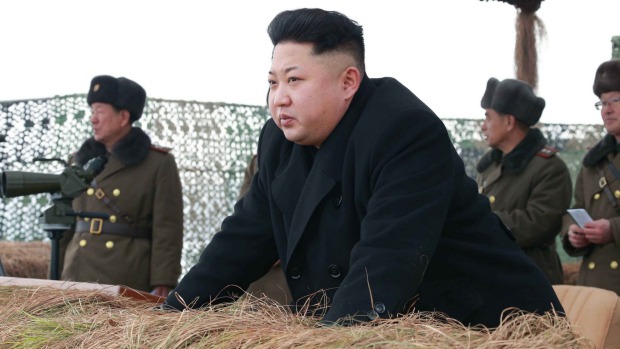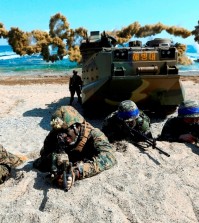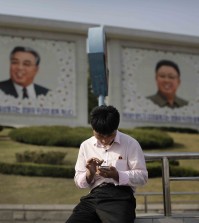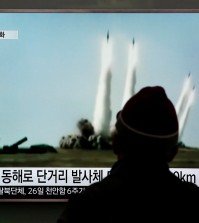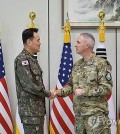- California Assembly OKs highest minimum wage in nation
- S. Korea unveils first graphic cigarette warnings
- US joins with South Korea, Japan in bid to deter North Korea
- LPGA golfer Chun In-gee finally back in action
- S. Korea won’t be top seed in final World Cup qualification round
- US men’s soccer misses 2nd straight Olympics
- US back on track in qualifying with 4-0 win over Guatemala
- High-intensity workout injuries spawn cottage industry
- CDC expands range of Zika mosquitoes into parts of Northeast
- Who knew? ‘The Walking Dead’ is helping families connect
Fear politics not helping N. Korean leader
By Kim Hyo-jin
North Korean leader Kim Jong-un’s “fear politics” will eventually weaken his power base, a noted North Korea expert said Friday.
The reaction came days after Kim executed the North’s Defense Minister Hyon Yong-chol. Months earlier, Kim also had Jang Sung-taek executed; he was married to Kim’s aunt and considered the North’s No. 2 before his demise.
“All of Kim’s moves would make most North Koreans skeptical of whether he deserves recognition and legitimacy,” John Swenson-Wright, head of the Asia Program at Chatham House, told the Korea Times. “In the long term, Kim is vulnerable.”
Swenson-Wright said Kim, whose position was already weak due his lack of military credentials, is now losing public support by showing a “brutal manner” in ruling the nation.
“More and more people in the North are privately willing to question his leadership,” he said.
Swenson-Wright expects that Kim is likely to rely more on “fear politics” in the future if he fails to show progress with the economy.
“In order to compensate for people’s skepticism, he has to deliver economic prosperity,” he said. “If he can’t, the ability to rule will become overly dependent on fear.”
“And that’s a dangerous passage to establish,” he said.
The renowned scholar, currently a senior lecturer at Cambridge University, participated in a session on the future of North Korea on the last day of the Jeju Forum.
Touching on how to approach North Korea’s nuclear ambitions, he urged Seoul to try to bring Pyongyang to the negotiation table by providing incentives.
“Setting up a liaison office in North Korea, starting talks on a peace treaty, economic assistance and humanitarian aid can be options,” he said.
However, he admitted the difficulty of implementing those goals.
“North Korea is erratic in its response to these approaches,” he said, mentioning the Gaeseong Complex dispute over the wages of North Korean workers.
He added that inter-Korean talks cannot open in a way that weakens South Korea’s deterrence.
“Any Korean leader should maintain the reliability of deterrence. Seoul is right to insist that it will not weaken its deterrence by compromising on military exercises,” he said.
Discussing the Park administration, Swenson-Wright gave a positive assessment.
“In terms of representing her argument, I think she was sincere on the North, though it might have been seen as too optimistic,” he said.
“Whether through the Dresden Initiative, or through NGOs and local governments, she wants closer contact with the North and has showed some flexibility,” he said.







